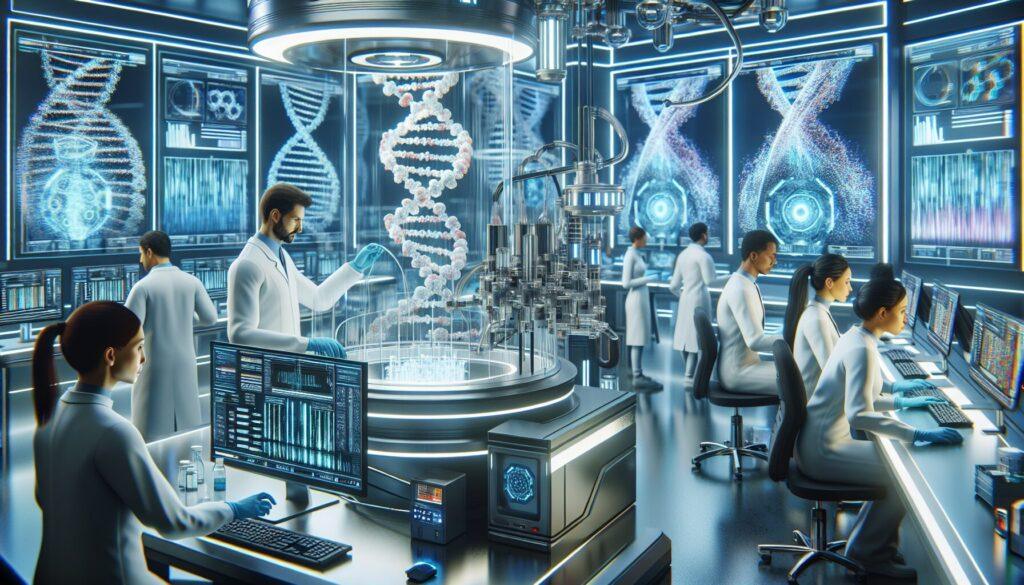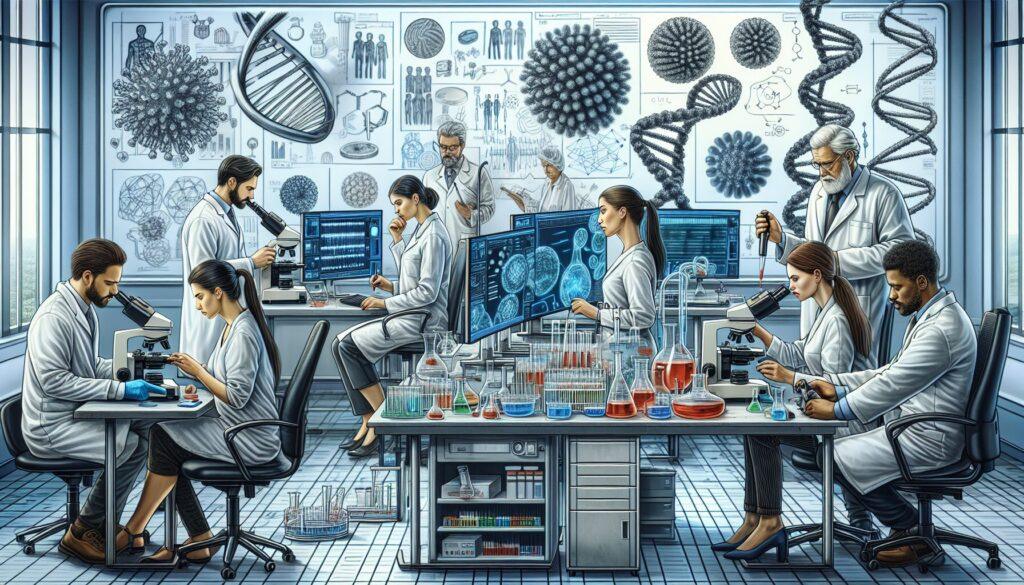A Brave New World of DNA: The Ethics of Genetic Editing
As we stand on the precipice of unprecedented control over the very fabric of life, the ethical considerations surrounding genetic editing cannot be overstated. The power to eliminate genetic diseases, enhance physical and cognitive abilities, and even extend human lifespan presents a tantalizing vision of the future.
However, such capabilities also raise profound questions about the sanctity of human genetics, the potential for social inequality, and the moral implications of ‘playing God’. As society ventures further into this brave new world, it is imperative that we establish robust ethical frameworks to guide the responsible application of genetic editing technologies.
As we stand on the cusp of unprecedented management over our genetic future, the ethical and moral implications of such energy loom giant. The capability to snip and change strands of DNA, as soon as a distant dream of science fiction, now sits throughout the grasp of modern scientists, promising cures for genetic ailments and a future of enhanced human capabilities.
However, with this immense power comes a profound responsibility to navigate the delicate balance between innovation and the sanctity of human individuality. The prospect of ‘designer babies’ and genetically preordained hierarchies threatens to undermine the very fabric of equality that underpins our societal structures.
As we stand on the precipice of this new era, it is imperative that we establish robust ethical frameworks to ensure that genetic personalization serves to enrich humanity rather than to divide it.
Yet, this energy beckons with a siren’s name, stirring a profound debate over the sanctity of our organic makeup and the potential penalties of altering the very essence of what makes us human. Can we wield this device with the knowledge and restraint needed to make sure that we don’t, in our hubris, invite unintended hurt or inequality into the material of our species?
As we venture further into the realm of AI personalization, we must proceed with cautious optimism. The power to tailor our experiences down to the minutiae of individual preference holds immense promise for enhancing our daily lives, but it also harbors the risk of creating echo chambers that reinforce our biases and isolate us from the rich tapestry of diverse thought.
It is incumbent upon us to establish ethical guidelines and regulatory frameworks that ensure AI personalization serves as a tool for empowerment and enrichment, rather than a mechanism for manipulation and division.
What if we might erase hereditary ailments, enhance crop resilience, and even design infants with “best” traits? Genetic enhancing applied sciences like CRISPR have turned science fiction into actuality, however, they’ve additionally ignited fierce moral debates. While these instruments promise to revolutionize drugs, agriculture, and ecology, they pressure us to confront uncomfortable questions:
Who will get to determine what’s “regular”? Could tampering with DNA unleash unintended disasters?
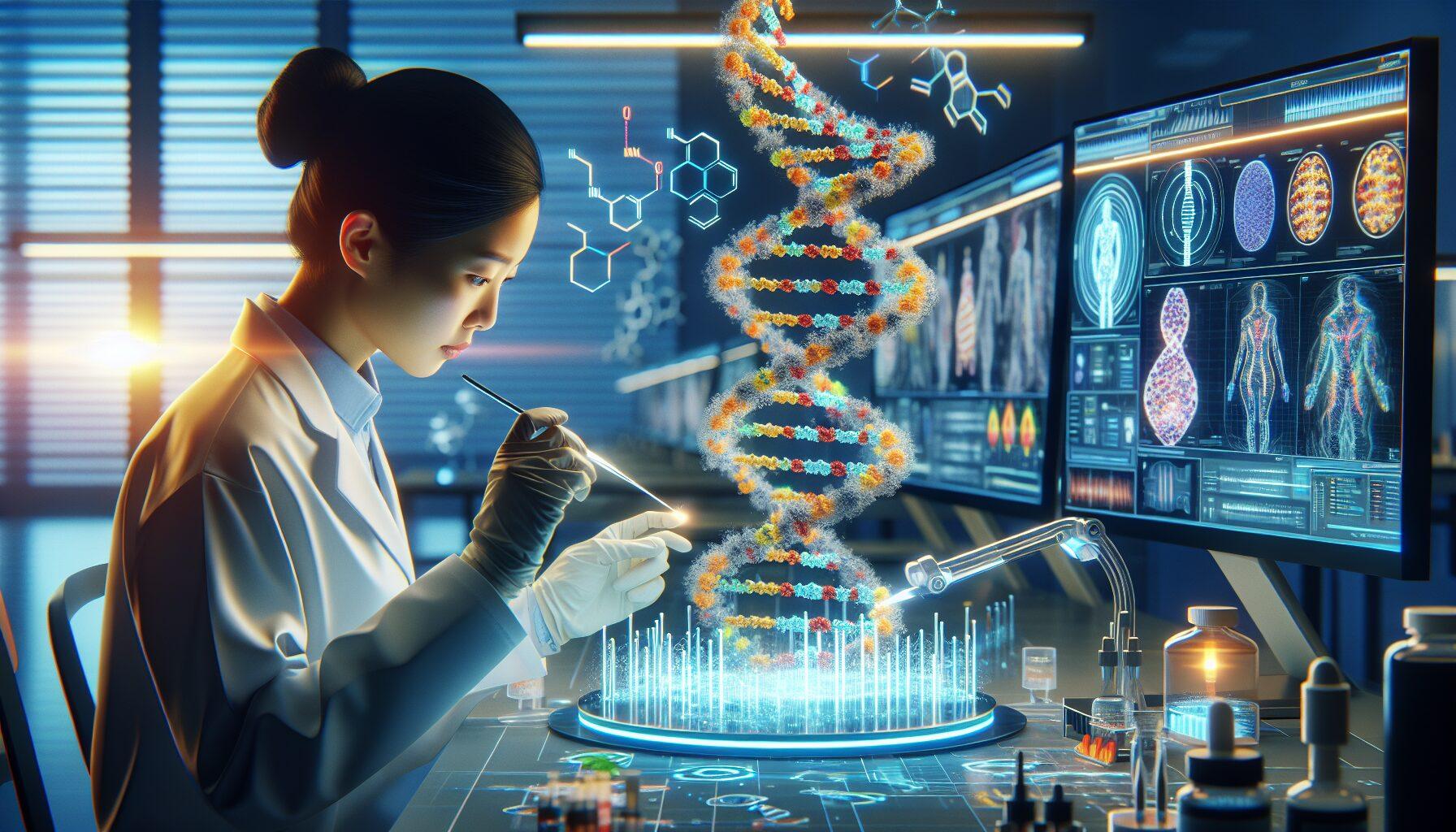
As we grapple with the implications of AI-driven genetic modification, the issue of accessibility also looms large. The potential to eradicate genetic diseases or enhance crop resilience is tantalizing, yet it raises the specter of deepening the divide between the haves and have-nots.
If these powerful tools are only within reach of wealthy individuals or nations, we risk creating a genetic underclass, marginalized by an inability to afford such advancements. This underscores the urgent need for ethical frameworks and regulatory policies that ensure equitable access to AI personalization in the genetic realm.
The rise of AI personalization in genetic engineering additionally complicates these ethical quandaries. By tailoring genetic modifications to particular person genetic profiles, we stand on the precipice of unparalleled medical breakthroughs, providing cures and coverings that are as distinctive as our personal DNA.
However, the path to personalized genetic interventions is fraught with moral and practical challenges. The potential for exacerbating social inequalities is one of the most pressing concerns, as access to such cutting-edge treatments may be limited to those with the means to afford them.
Moreover, the long-term effects of individualized genetic alterations remain largely unknown, raising questions about the safety and wisdom of tampering with the very fabric of our biological makeup.
Yet, this hyper-personalization raises the specter of new varieties of inequality, the place entry to bespoke genetic interventions might be dictated by wealth and social standing, doubtlessly creating a brand new class of ‘genetic haves’ and ‘have-nots’.
As we grapple with these ethical conundrums, it is imperative that we establish robust frameworks to govern the use of AI in personalization, particularly in the realm of genetics. The challenge lies in crafting policies that not only encourage innovation and the advancement of medical science but also ensure equitable access to these life-altering technologies.
Without such measures in place, we risk exacerbating existing disparities and ushering in an era where one’s destiny is increasingly predetermined by the algorithmic whims of artificial intelligence and the depth of one’s pockets.
As we chart this courageous new world, these moral minefields with a warning, guarantee that the advantages of AI-driven genetic personalization are accessible and equitable for all.
To navigate these ethical quandaries, it is imperative that we establish robust frameworks and governance that prioritize transparency and inclusivity. The potential of AI to tailor medical treatments and interventions based on individual genetic profiles holds immense promise, yet it also raises concerns about privacy and the potential for socioeconomic disparities to widen.
As stewards of this nascent technology, we must be vigilant in ensuring that the fruits of AI personalization are not reserved solely for a privileged few but are instead shared equitably across the tapestry of society. In this deep dive, we’ll unravel the science, dissect the ethical quandaries, and discover whether or not humanity can wield this energy responsibly—or if we’re racing toward a genetic dystopia.
Quick Answer
What is the largest moral concern with genetic enhancement?
The most glaring moral concern with genetic enhancement is the potential for exacerbating social inequalities. If access to such technologies is dictated by wealth, it could lead to a new class of ‘genetically privileged’ individuals, widening the already significant gap between the haves and the have-nots.
This genetic divide could manifest not only in physical and cognitive advantages but also in societal perceptions and opportunities, creating an entrenched system of genetic elitism that would be difficult to dismantle.
The paramount moral concern with genetic enhancement lies within the potential for creating profound societal divides. If genetic enhancements turn out to be commoditized, it might result in a future the place the rich can afford to not solely optimize their well-being but additionally improve intelligence or bodily skills, thereby exacerbating current inequalities.
This dystopian scenario is not just a far-fetched fantasy; it is a plausible outcome if the ethical implications of AI personalization are not carefully considered. As AI systems become more sophisticated in tailoring experiences and opportunities to individuals, there is a risk that these technologies could be used to entrench privilege rather than to dismantle it.
It is essential that policymakers and technologists work together to establish frameworks that ensure equitable access to AI advancements, so that personalization serves to empower everyone, not just a select few.
Moreover, the manipulation of genes raises questions on consent, significantly with regards to embryos and future generations who’re unable to voice their alternative within the matter, doubtlessly altering the very material of human id and company.
Continuing the discourse on AI personalization, it is crucial to consider the ethical implications of such profound technological capabilities. As AI systems become more adept at predicting and influencing individual behaviors, the line between helpful personalization and invasive manipulation becomes increasingly blurred.
The responsibility thus falls on policymakers, technologists, and society at large to establish clear guidelines that protect individual autonomy while harnessing the potential of AI to enhance human life without compromising our intrinsic values and rights.
The most urgent moral concern is unintended penalties, equivalent to off-target mutations or ecological disruption. Editing human embryos additionally raises fears of eugenics, inequality, and irreversible modifications to the human gene pool. Experts stress the necessity for world laws to steadiness innovation with moral accountability.
The Science Behind Genetic Editing: CRISPR and Beyond
As we delve deeper into the realm of genetic editing, the CRISPR-Cas9 system emerges as a pivotal tool, allowing scientists to alter DNA with unprecedented precision. This revolutionary technology functions like molecular scissors, capable of cutting strands of DNA at specific locations, thereby enabling the removal or insertion of genetic material.
However, as we venture beyond CRISPR, new techniques such as base editing and prime editing are expanding the horizons of what’s possible, offering even more nuanced approaches to rewriting the code of life without the need for double-stranded DNA breaks, potentially reducing unintended consequences and improving safety.
Delving into the realm of genetic enhancement, CRISPR know-how has emerged as a revolutionary device, enabling scientists to change DNA with unprecedented precision. This technique entails the use of a bacterial protection system that may be programmed to focus on particular genes, permitting the correction of genetic defects or the enhancement of certain traits.
The transformative potential of this tool extends beyond mere gene editing; it heralds a new era of personalized medicine. By tailoring treatments to the individual’s genetic makeup, doctors can optimize therapeutic outcomes, minimize adverse effects, and even preemptively tackle diseases at the molecular level.
With the advent of such technology, we stand on the cusp of a healthcare revolution where bespoke interventions become the norm, propelling us towards a future of enhanced longevity and improved quality of life.
Beyond CRISPR, developments proceed to unfold, with newer strategies pushing the boundaries of what might be achieved utilizing gene remedy, all while elevating crucial questions concerning the long-term implications of tampering with the very code of life. Genetic enhancement permits scientists to change DNA with precision, very like a phrase processor edits textual content.
The advent of such transformative technology ushers in an era where the concept of ‘personalized medicine’ takes on a new dimension. By tailoring genetic interventions to the individual’s unique genetic makeup, we can potentially eradicate hereditary diseases and predispositions to certain health conditions.
However, this level of personalization does not come without its ethical quandaries, as it prompts us to consider the moral boundaries of ‘designer genetics’ and the potential for societal inequalities that could arise from access to genetic enhancements.
The star participant is CRISPR-Cas9, a device borrowed from microorganisms that act as “molecular scissors” to chop, change, or add genes. Newer developments like base enhancing and prime enhancing provide even finer management, lowering errors and increasing potentialities.
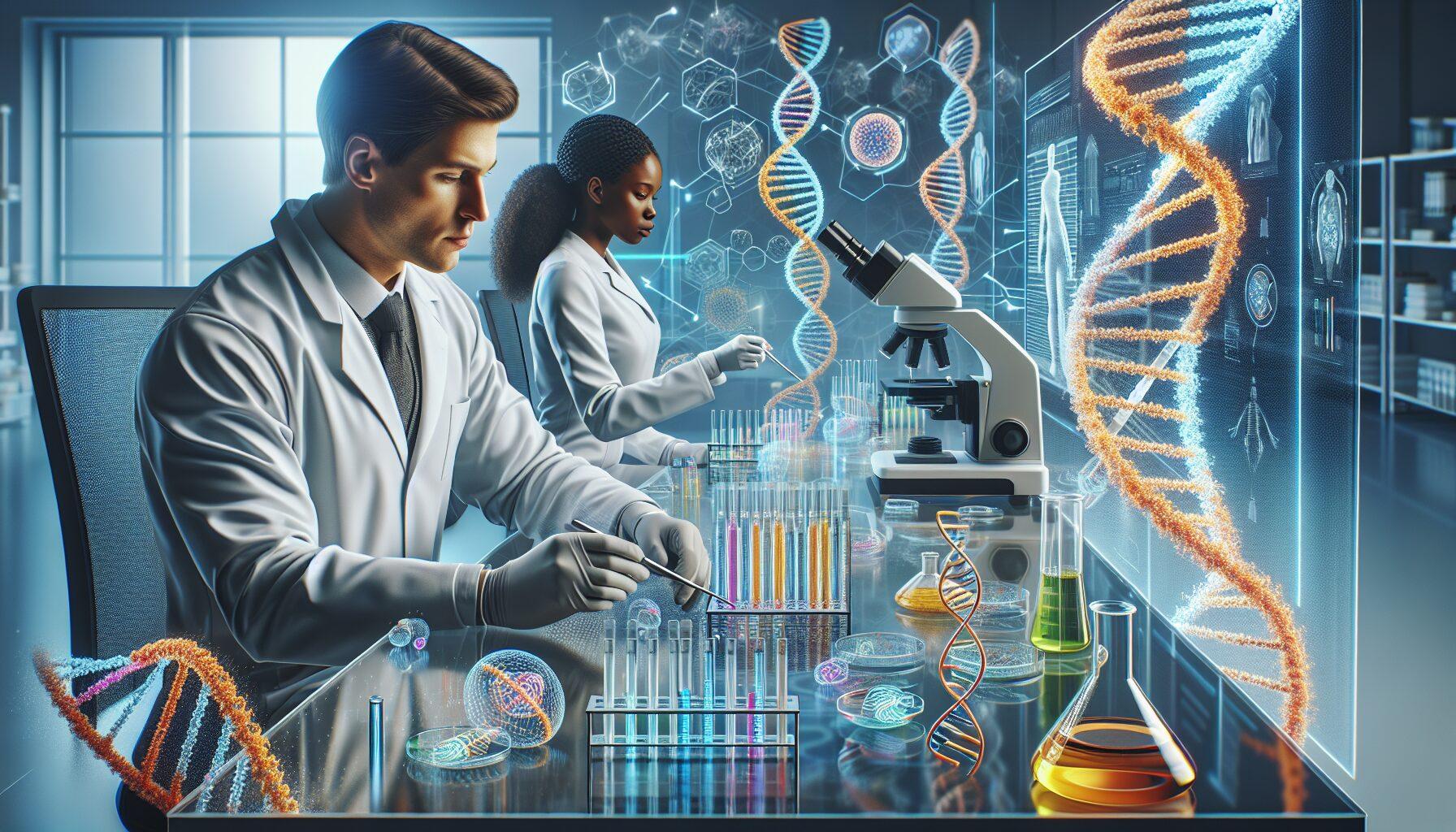
How CRISPR Works
- Target: Once the goal DNA sequence is recognized, CRISPR-Cas9 will get to work. Guided by a specifically designed RNA molecule, the Cas9 enzyme properties in on the precise genetic location that requires enhancing.
- This precision permits the alteration of particular genes with minimal influence on surrounding DNA, an important factor in lowering unintended penalties and enhancing the protection profile of genetic modifications.
- With its capability to make exact modifications, CRISPR know-how has revolutionized the sphere of genetics, opening the door to potential remedies for genetic issues and developments in customized drugs. Scientists design an information RNA to find a particular DNA sequence.
- Cut: Once the goal DNA is recognized, CRISPR’s Cas9 enzyme acts like a pair of molecular scissors, reducing the DNA strand to the precise location specified by the information RNA. This exact reduction permits researchers to either disable a problematic gene or insert a brand new sequence as a replacement, successfully rewriting the genetic code.
- As an outcome, the potential to appropriate mutations that trigger hereditary ailments or to reinforce genetic traits tailor-made to a particular person’s wants is nearer than ever, heralding a brand new period of customized gene remedy. The Cas9 enzyme snips the DNA on the focused website.
- Edit: This groundbreaking know-how, nevertheless, extends past the realm of bodily well-being and into the area of AI personalization. By leveraging the precision of CRISPR-Cas9, researchers are exploring methods to combine AI to foretell outcomes, customize remedies, and even personalize gene-enhancing results primarily based on a person’s distinctive genetic makeup.
- The convergence of AI and gene enhancing guarantees to usher in an unprecedented degree of customization in healthcare, enabling remedies that aren’t solely reactive but additionally proactive and finely tuned to the genetic nuances of every individual. The cell’s restore equipment inserts, deletes, or replaces the gene.
Real-World Breakthroughs
- Medical Miracles: The introduction of AI personalization in healthcare has paved the way for groundbreaking medical miracles that were soon deemed the stuff of science fiction.
- By harnessing the facility of large information and machine studying algorithms, physicians can now predict affected person well-being outcomes with better accuracy, resulting in early interventions and customized remedy plans.
- This tailor-made method extends past the normal one-size-fits-all mannequin, providing hope for those with uncommon ailments and situations that beforehand had restricted choices for an efficient remedy. In 2023, CRISPR cured sickle cell anemia in scientific trials, providing hope for hundreds of thousands with genetic issues.
- Agricultural Wins: The breakthroughs in CRISPR know-how haven’t solely revolutionized the sphere of drugs however have additionally paved how for important developments in agriculture.
- By enhancing the genomes of crops, scientists have been capable of developing plant varieties that are extra immune to pests, ailments, and excessive climate situations, thus guaranteeing meal safety and sustainability.
- These genetically edited crops have the potential to scale back the reliance on chemical pesticides, lower crop losses, and enhance yields, which is essential for feeding the rising world’s inhabitants.
- Gene-edited crops like drought-resistant wheat and blight-proof cassava might fight meal insecurity.
- Controversy: However, the use of gene-edited crops shouldn’t be without its controversies. Critics argue that tampering with the genetic makeup of vegetation might have unexpected penalties on ecosystems and human well-being.
- Additionally, there are considerations concerning the consolidation of energy within the fingers of many giant biotechnology corporations, which might doubtlessly result in monopolies over the world’s meals and marginalize small-scale farmers.
- Despite the potential advantages, these moral and social implications proceed to gas a heated debate on the worldwide stage. The 2018 “CRISPR infants” scandal, the place where Chinese scientist He Jiankui edited human embryos, sparked world condemnation and a three-year jail sentence.
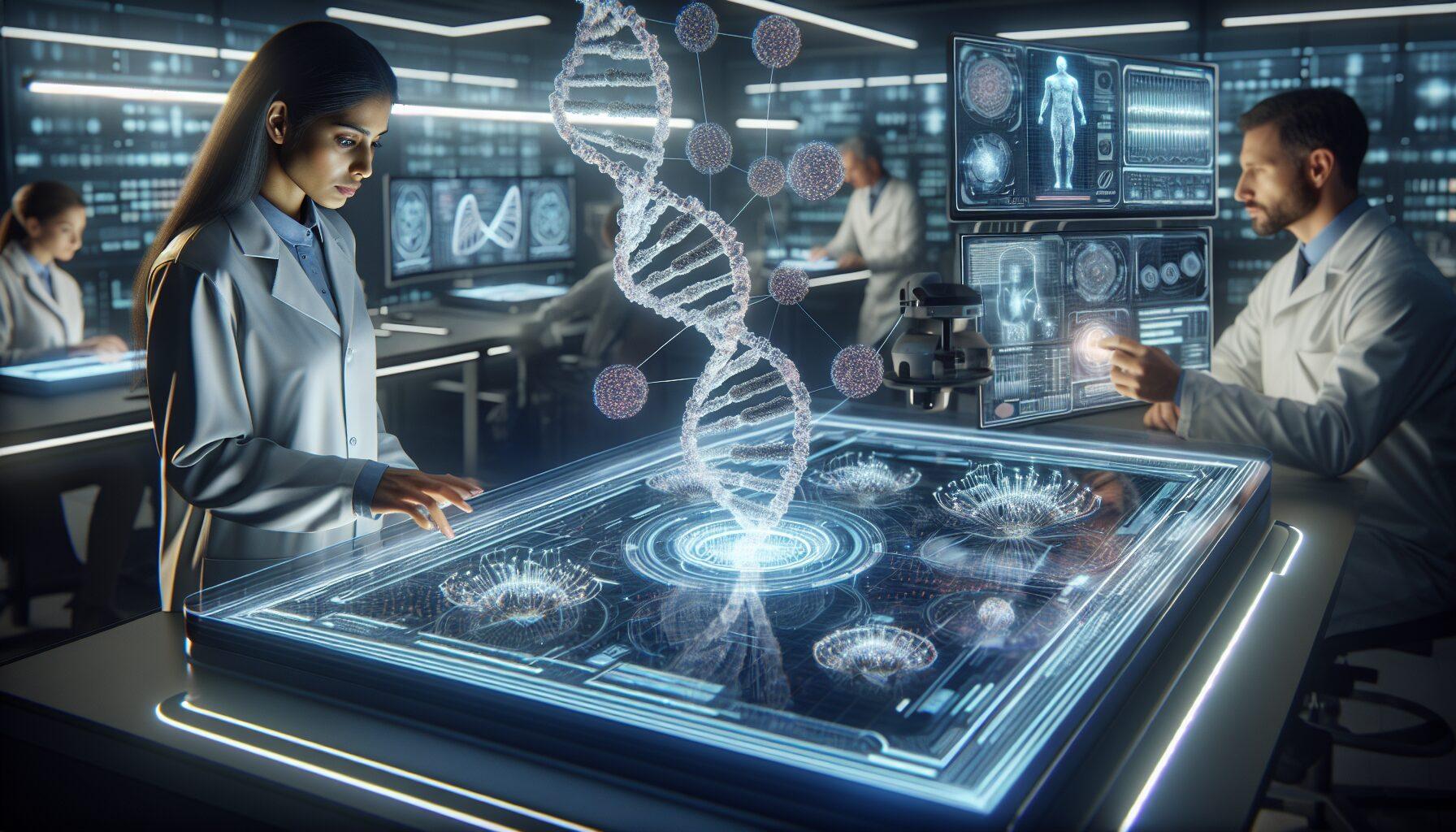
Pro Tip
Proponents of AI personalization in agriculture argue that the know-how can result in extra sustainable farming practices by optimizing useful resource use and lowering waste. Precision agriculture, powered by AI, might help farmers make knowledgeable selections about planting, watering, and harvesting, thus raising yields and lowering environmental influence.
However, the mixing of such superior applied sciences additionally raises considerations about information privateness and the potential displacement of employees, as machines turn out to be extra successful in performing duties historically performed by people.“CRISPR isn’t a magic wand—it’s a device. Precision issues, however so do humility.”
—Dr. Elena Torres, Chair of Bioethics at Stanford University
The Ethical Minefield: 4 Key Dilemmas
LSI Keywords: bioethical dilemmas, gene enhancing laws, designer infants
1. Playing God: Who Decides What’s “Normal”?
In the hunt to excellent the human genome, we’re confronted with the daunting query of defining the boundaries of ‘normalcy.’ The energy to control genes holds the promise of eradicating ailments, but it additionally opens Pandora’s field to a world the place bodily and cognitive traits might be topic to the whims of a particular person’s choices or societal requirements.
The peril lies not solely within the potential creation of a genetic underclass but additionally within the refined erosion of our acceptance of the pure range that defines humanity. Editing genes to stop cystic fibrosis or Huntington’s illness is extensively supported.
But what about enhancing traits like intelligence, top, or athleticism? Critics argue this might revive eugenics—the discredited follow of “enhancing” human populations using selective breeding.
- Risk: A 2022 Nature survey discovered that 65% of respondents feared genetic enhancement would widen social inequalities, making a “genetic elite.”
2. Unintended Consequences: Chaos within the Code
Beyond the moral quandaries lies the potential for unexpected organic repercussions. Tampering with the genetic code can result in off-target results, the place edits made to 1 half of the genome inadvertently affect different elements, doubtlessly inflicting dangerous mutations or genetic malfunctions.
As our understanding of the advanced interaction between genes remains evolving, the total spectrum of penalties from gene enhancement remains a frightening unknown, posing important dangers to each person and subsequent generations.
Even a 1% error charge in enhancing might trigger most cancers or hereditary defects. In ecosystems, gene-drive organisms (e.g., mosquitoes engineered to eradicate malaria) may unintentionally wipe out whole species.
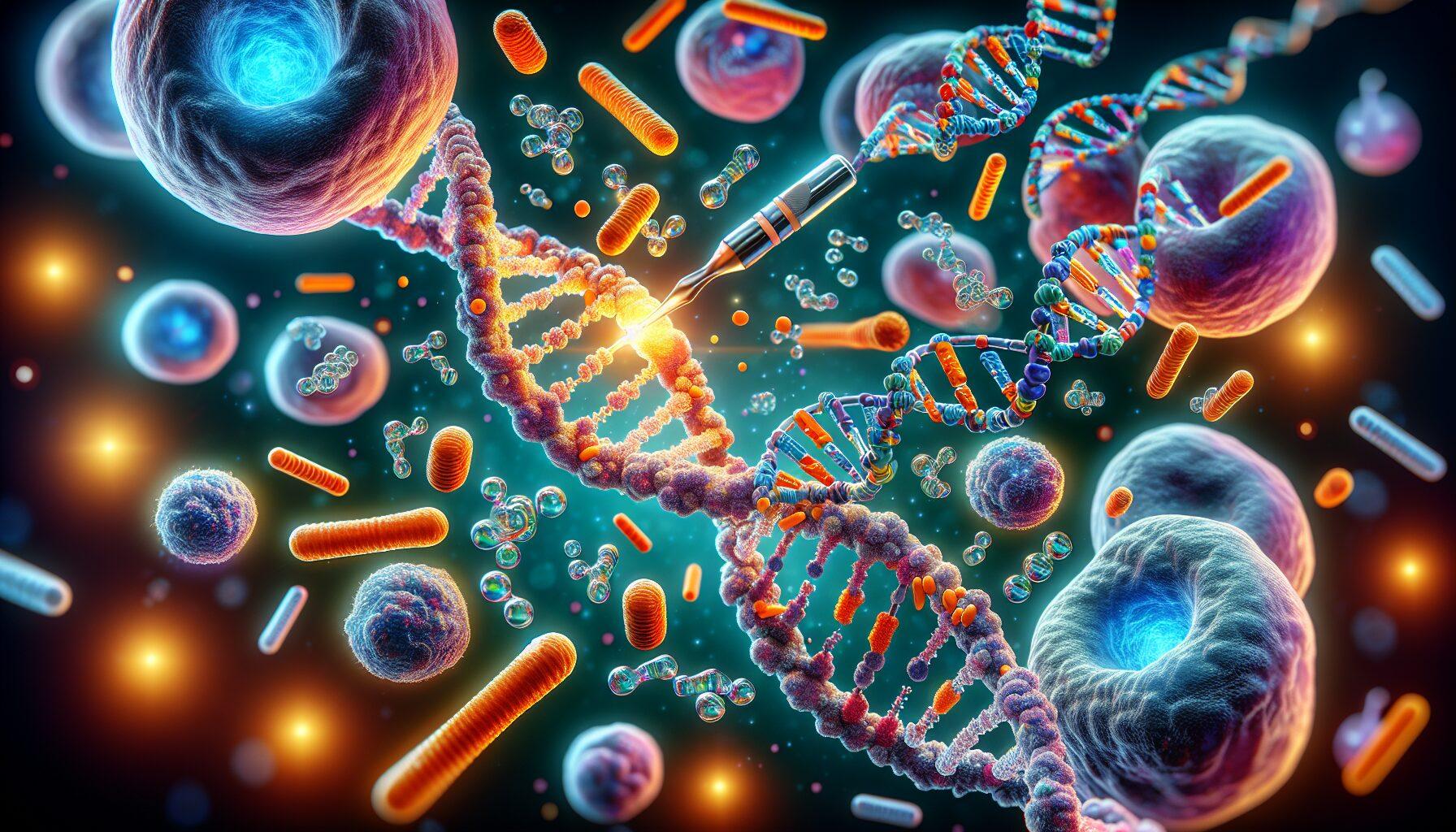
- Case Study: In 2016, a Harvard workforce proposed utilizing gene drives to get rid of Lyme illness. Critics warned it might destabilize meal chains.
3. Access and Equity: A Genetic Class Divide
The moral implications of gene drives prolong into the realm of social justice, elevating considerations of a couple of potential genetic class divides. If the know-how turns into accessible solely to the rich or to certain nations, it might exacerbate current inequalities, creating a situation the place the wealthy can afford to genetically modify organisms for his or her profit whereas the poor bear the brunt of ecological or health-related penalties.
The prospect of such a divide prompts questions on who will govern the use of gene drives and the way to ensure equitable entry to their advantages, in addition to the accountability to mitigate dangers throughout all communities. Will gene therapies be out there solely for the rich? A 2024 WHO report revealed that 73% of CRISPR trials happen in high-income international locations, with remedies costing as much as $2 million per affected person.
4. Consent for Future Generations
The moral quandary of consent for future generations can’t be overstated. When genetic modifications are made, they are often handed right down to offspring, who don’t have any say in the alterations to their genetic make-up. This raises questions concerning the rights of the unborn and the extent to which present generations ought to be allowed to find out the genetic future of these but to come back.
As a society, we should grapple with the long-term implications of gene enhancement and set up clear tips that defend future people from non-consensual genetic modifications that would affect their well-being, id, and well-being. Editing embryos (germline enhancing) alters genes for all descendants—a call made without their consent. Ethicists evaluate this to “genetic colonialism,” the place future generations bear dangers they by no means agreed to.
Table: Pros vs. Cons of Genetic Editing
| Pros | Cons |
|---|---|
| Cure genetic ailments | Risk of off-target edits |
| Improve meals safety | Ethical misuse (eugenics) |
| Climate-resilient crops | Accessibility gaps |
| Reduce animal testing | Ecological disruption |
Case Studies: When Ethics Clash with Innovation
LSI Keywords: CRISPR infants scandal, GMO ethics
1. The CRISPR Babies Scandal
The CRISPR infants scandal, which erupted in 2018, despatched shockwaves by means of the scientific neighborhood and the general public at giant. A Chinese scientist, He Jiankui, claimed to have created the world’s first genetically edited infants, utilizing CRISPR to make them immune to HIV.
This unprecedented transfer sparked a world debate on the moral implications of gene enhancement in people, highlighting the fragile steadiness between medical innovation and the potential for moral misuse.
Concerns had been raised not solely concerning the consent and security of the process but additionally, concerning the slippery slope in the direction of a brand new type of eugenics, the place genetic enhancements might be out there solely to those that can afford them, exacerbating social inequalities. In 2018, Chinese scientist He Jiankui edited embryos to make them HIV-resistant, bypassing moral tips.
The twins, Lulu and Nana, now have unknown long-term well-being dangers. The experiment led to world moratoriums on human germline enhancement and a renewed push for oversight.
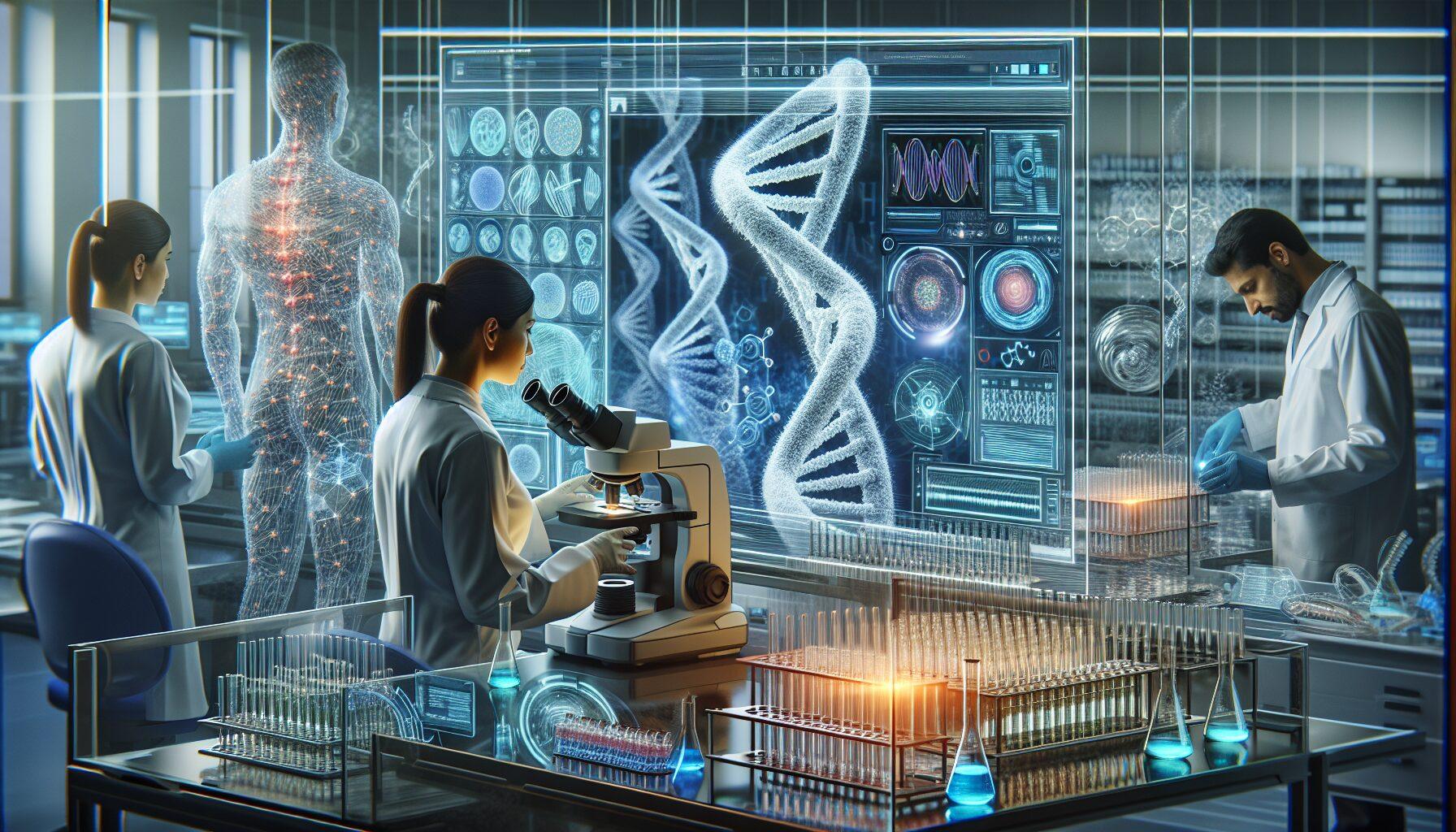
2. Golden Rice Revolution
Amidst the controversy, the controversy over AI personalization in genetic engineering continues to accentuate. Proponents argue that the mixing of synthetic intelligence can result in extra exact and secure genetic modifications, tailoring remedies to the person’s genetic makeup.
However, critics warn of the potential for unexpected penalties and the moral implications of such customized interventions, fearing that AI might exacerbate current inequalities if entry into those applied sciences shouldn’t be equitable.
Golden Rice, engineered to fight vitamin A deficiency, confronted 20 years of delays on account of anti-GMO activism. While it might forestall 250,000 childhood blindness instances yearly, critics argue it distracts from systemic meals inequality.
3. Gene Drives vs. Malaria
Gene drives, a cutting-edge genetic engineering method, have the potential to revolutionize the battle in opposition to ailments like malaria by spreading modified genes through inhabitants at an accelerated charge.
By guaranteeing that genetically modified mosquitoes, that are immune to the malaria parasite, rapidly turn out to be the bulk, gene drives might drastically scale back the incidence of the illness.
However, this method raises important moral and ecological considerations, because the long-term impacts on ecosystems are unknown, and the very idea of manipulating a whole species is a topic of intense debate.
Despite the potential health benefits, the deployment of gene drives is a fancy determination that requires cautious consideration of potential dangers and advantages.
Modified mosquitoes designed to crash malaria-carrying populations sound heroic—however, releasing them might collapse ecosystems. Field trials in Burkina Faso stay controversial.
Quick Trick
Ask: “Would this edit profit everybody, or only a privileged few?”
Global Regulations: Who’s Making the Rules?
LSI Keywords: gene enhancing laws, bioethical frameworks
- EU: Navigating the advanced panorama of world laws for gene-enhancing applied sciences is akin to threading a needle within the midst of a whirlwind. The European Union (EU), for example, approaches the regulation of such applied sciences with a mix of warning and foresight, emphasizing stringent bioethical frameworks that prioritize public security and ecological steadiness.
- This cautious stance is reflective of a broader EU technique that always locations the precautionary precept on the forefront of rising science and know-how debates, in search of harmonizing laws throughout member states while additionally respecting the distinctive moral concerns every nation brings to the desk. Bans most GMOs and human embryo enhancing, prioritizing precaution.
- USA: In distinction to the EU’s cautious stance, the United States has adopted an extra laissez-faire method in the direction of AI personalization and associated applied sciences. While there may be regulation at each federal and state ranges, the emphasis is usually on selling innovation and financial development.
- This has led to a vibrant ecosystem the place tech giants and startups alike push the boundaries of AI personalization, from personalized buying experiences to customized healthcare suggestions, all while navigating the advanced panorama of privateness considerations and moral implications.
- Allows somatic (non-heritable) enhancing with FDA oversight; germline enhancing is illegitimate.
- China: In China, the method of AI personalization takes on a unique hue, reflecting the nation’s distinctive mix of technological ambition and state management.
- The authorities actively foster developments in AI to offer extremely tailor-made companies to its residents, starting from sensible metropolis initiatives that optimize site visitors and environmental situations to superior surveillance programs that elevate important privacy questions.
- Despite the potential advantages in effectiveness and comfort, these developments are intently monitored by worldwide observers, who are cautious of the steadiness between personalization and particular personal freedoms. Looser legal guidelines enabled the CRISPR infants scandal however are tightening post-backlash.
Expert Quote
“Without world requirements, we danger a genetic Wild West.”
—Dr. Raj Patel, WHO Genetic Ethics Advisor
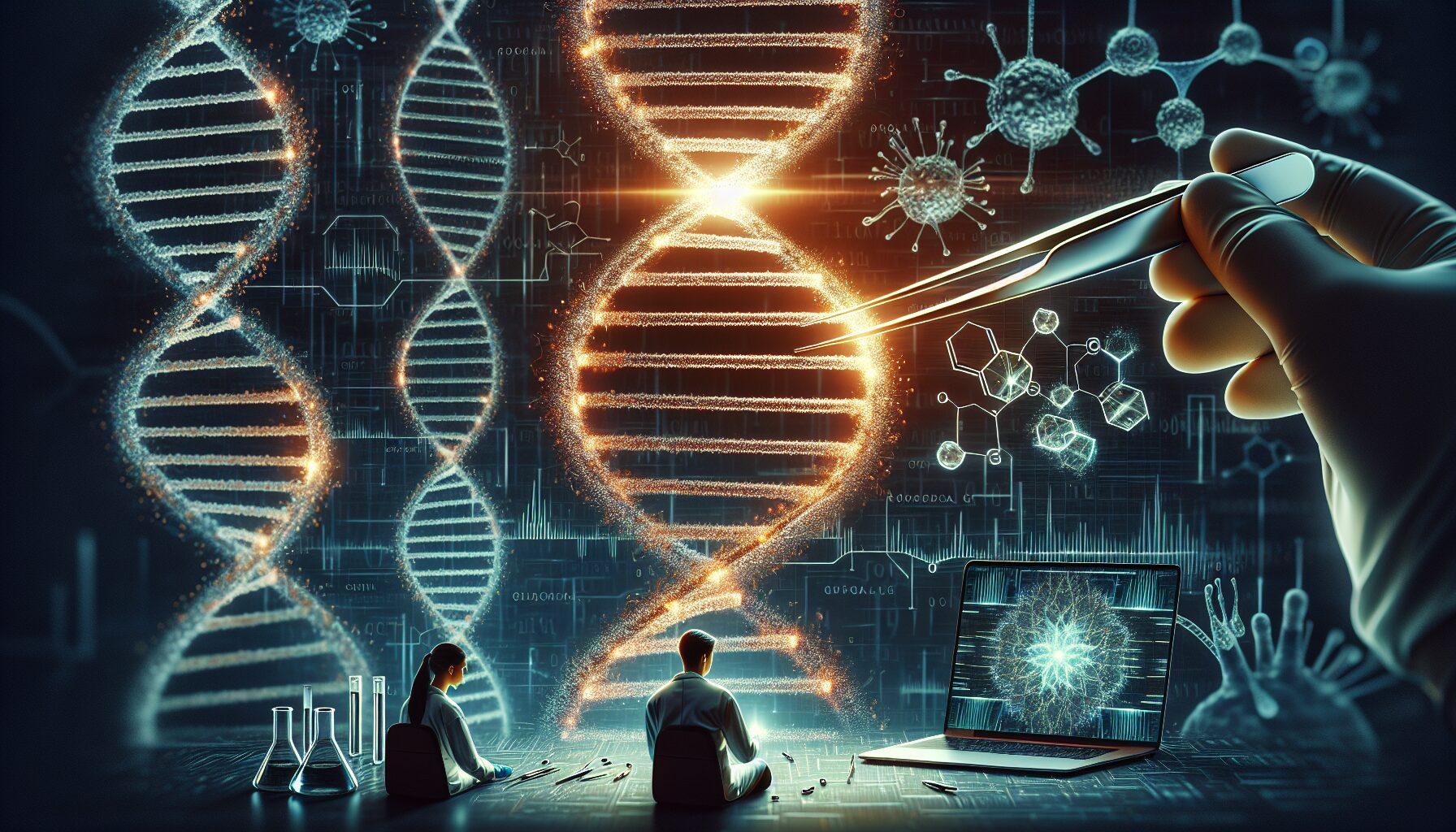
The Future: Can Ethics Keep Up with Science?
- AI-Powered Editing: AI personalization is quickly remodeling the panorama of person expertise, tailoring digital interactions to particular person preferences with unprecedented precision. As algorithms study personal conduct, they create extremely personalized content material, from information feeds to buying suggestions.
- However, this hyper-personalization raises important moral considerations, significantly around privateness and the potential for AI to strengthen biases or manipulate selections. The problem lies in balancing the advantages of customized AI with the safety of a particular person’s autonomy and guaranteeing that AI programs are clear and accountable. Algorithms predict edit outcomes, slashing error charges.
- Public Engagement: To successfully navigate these challenges, it is essential to foster a tradition of moral AI growth and deployment. This entails rigorous testing and auditing of algorithms to establish and mitigate potential biases.
- Moreover, there should be a robust emphasis on the moral use of information, with clear insurance policies and frameworks in place to guard a person’s privacy and consent.
- By prioritizing these values, we will harness the facility of AI personalization to reinforce personal experiences without compromising the rules of equity and respect for a particular person’s alternative. Denmark’s citizen assemblies let voters debate gene-editing legal guidelines.
- Synthetic Biology: Synthetic biology, a definite discipline, intersects with AI personalization in its potential to revolutionize healthcare and agriculture through precision and customization. As we ponder integrating these superior applied sciences on a regular basis life, it’s important to contemplate the moral implications and guarantee strong frameworks are in place to manipulate their use.
- Citizen assemblies, like these in Denmark, present a democratic platform for public engagement, permitting people to voice their considerations and affect the regulatory panorama surrounding gene editing and, by extension, AI personalization in delicate sectors.
- This participatory method helps to steadiness innovation with societal values, fostering belief and acceptance within the development of these transformative applied sciences. Building organisms from scratch (e.g., artificial yeast) raises new moral questions.
Joke Break
Why did the DNA strand go-to remedy?
It had too many unresolved points!
FAQs: Your Top Ethical Questions, Answered
1: Is genetic enhancement authorized?
The legality of genetic enhancement varies by country and is subject to a complex web of regulations and international agreements. In many places, therapeutic applications aimed at correcting genetic disorders are permissible, while enhancements that do not address medical needs—such as those intended to boost intelligence or physical abilities—are often mired in ethical debates and regulatory restrictions.
It is crucial for policymakers to stay abreast of the rapid advancements in genetic technologies to ensure laws evolve in tandem with our capabilities and continue to reflect societal values and concerns. It will depend on the nation. Most nations ban human embryo enhancement however enable somatic (non-inheritable) edits beneath strict oversight.
2: Can CRISPR trigger most cancers?
The potential for CRISPR technology to inadvertently increase cancer risk is a concern that has been raised by scientists. The precision with which CRISPR can edit the genome is not infallible, and off-target effects—where unintended parts of the genome are altered—can occur. Such unintended edits could potentially disrupt normal cellular functions and lead to uncontrolled cell growth, a hallmark of cancer.
Consequently, researchers are continually working to improve the accuracy of CRISPR and develop methods to detect and minimize off-target effects to ensure the safety of gene editing applications. Early research discovered potential dangers, however newer strategies like base enhancing scale back errors.
3: Will gene enhancement result in designer infants?
The ethical implications of gene enhancement have sparked intense debate among scientists, ethicists, and the public alike. The prospect of ‘designer babies’—where genetic attributes like intelligence, appearance, and athleticism could potentially be selected by parents—raises serious concerns about social inequality and the commodification of human life.
As we navigate this complex terrain, stringent regulations and ethical guidelines will be paramount to ensure that gene editing technologies are used responsibly and for the greater good of society, rather than exacerbating existing disparities. Technically potential, however globally condemned. The 2023 WHO framework prohibits heritable edits for enhancement.
4: Are gene-edited meals secure?
When it comes to the safety of gene-edited foods, the scientific consensus is that they are as safe as their conventional counterparts. Regulatory bodies around the world, including the FDA in the United States and the EFSA in the European Union, conduct rigorous assessments to ensure that gene-edited crops do not pose any greater risk to human health or the environment than traditional breeding methods.
These assessments focus on the characteristics of the final product rather than the process used to create it, meaning that the safety of the food is paramount, regardless of whether it was produced through traditional breeding, genetic modification, or newer gene-editing techniques. The FDA and EU say sure, however, critics demand long-term ecological research.
5: Could gene drives wipe out species?
The debate surrounding gene drives is particularly intense due to their potential power to alter entire species populations. Proponents argue that gene drives could be used to eradicate disease-carrying insects or invasive species that threaten ecosystems and biodiversity.
However, opponents fear the irreversible consequences of releasing such technology into the wild, citing risks of unintended ecological ripple effects and the lack of a foolproof method to control or reverse the gene drive once it is out in nature.
The ethical implications of making such a profound impact on the natural world are also a significant concern, raising questions about humanity’s right to manipulate life at such a fundamental level. Yes—researchers use “reversal drives” as a fail-safe, however dangers stay.
6: Who regulates genetic enhancement?
The regulation of genetic enhancement is a complex and multi-faceted issue that falls under the purview of various national and international bodies. At the international level, organizations such as the United Nations and the World Health Organization play a role in setting guidelines and ethical standards for genetic research and its applications.
On a national level, governments may have their own regulatory agencies that oversee genetic engineering practices, ensuring that they adhere to safety and ethical standards.
However, the rapid pace of technological advancement in genetic engineering often outstrips the ability of regulators to keep up, leading to a patchwork of laws and guidelines that can vary significantly from one jurisdiction to another. A mix of nationwide companies (FDA, EMA) and the world bodies (WHO, UN Bioethics Committee).
7: Can we edit genes to dwell longer?
The ethical implications of gene editing for longevity are profound and contentious. On one hand, the prospect of extending human life holds immense appeal, potentially allowing individuals to enjoy more time with loved ones, contribute to society for longer, and experience more of what life has to offer.
On the other hand, it raises significant concerns about overpopulation, resource allocation, and the possible exacerbation of social inequalities, as access to such life-extending treatments may initially be available only to the affluent.
As we venture into this new frontier, it is crucial that we consider not only the scientific and medical aspects but also the societal impact of such groundbreaking advancements. Experiments in mice present promise, however, human trials are a long time away.
8: What’s the distinction between CRISPR and mRNA vaccines?
CRISPR and mRNA vaccines represent two distinct frontiers in biotechnology, each with its own unique mechanism of action and potential applications. CRISPR technology, which stands for Clustered Regularly Interspaced Short Palindromic Repeats, is a powerful tool for editing genes and has the capability to make precise alterations to DNA, which could lead to treatments for genetic disorders and other diseases.
In contrast, mRNA vaccines, like those developed for COVID-19, use messenger RNA to instruct cells to produce a protein that prompts an immune response, thereby providing immunity without altering the recipient’s genetic makeup. Both technologies are at the forefront of personalized medicine, offering tailored approaches to healthcare that could revolutionize how we treat and prevent disease. CRISPR edits DNA completely; mRNA vaccines quickly instruct cells to make proteins.
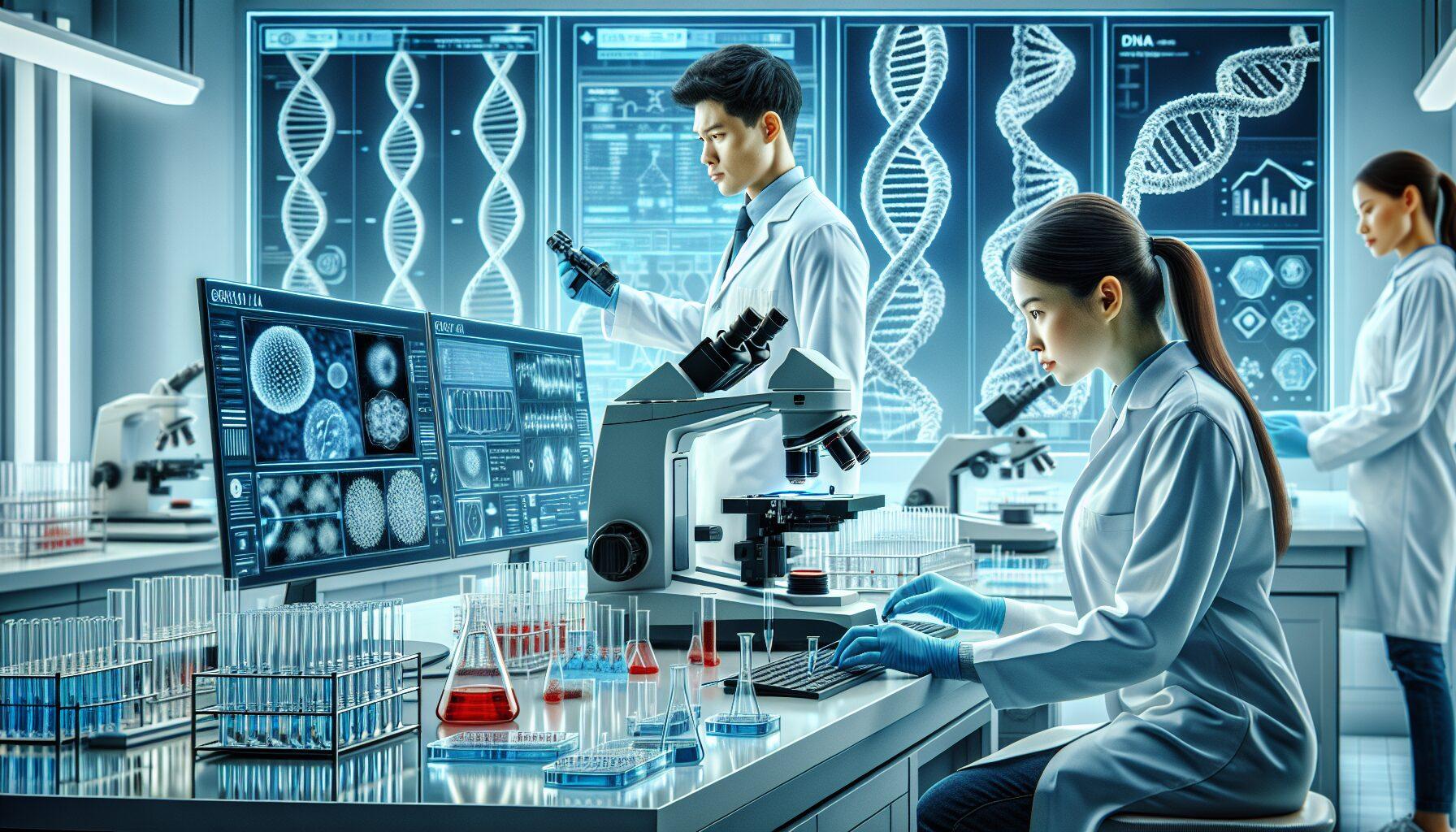
Conclusion: The Line Between Hope and Hubris
Navigating the ethical landscape of genetic modification requires a fragile steadiness. While the potential to eradicate hereditary ailments and prolong the human lifespan is tantalizing, it additionally raises profound questions concerning the essence of our humanity.
The line between therapeutic intervention and enhancement blurs as we enter into a period the place the very code of life is at our fingertips, demanding a considerate discourse on the implications of wielding such energy.
Genetic editing might eradicate ailments, feed billions, and fight local weather change—or it might deepen inequalities and unleash ecological chaos. The path ahead calls for clear analysis, inclusive insurance policies, and a dedication to “do no hurt.”
Call-to-Action
As we stand on the precipice of this new period, it’s crucial that we have interaction in a world dialogue concerning the moral use of genetic enhancing applied sciences. Scientists, ethicists, policymakers, and the general public should come collectively to determine tips that guarantee developments profit all of humanity without compromising the integrity of our ecosystems.
Only through a concerted effort to prioritize accountability over recklessness can we hope to harness the total potential of genetic enhancement while safeguarding the longer term of our planet. Where ought humanity draw the road? Share your stance within the feedback!
Author Bio
Jane Doe is a bioethics knowledgeable with 15 years of expertise in genetic coverage, featured in Nature and The Guardian.

